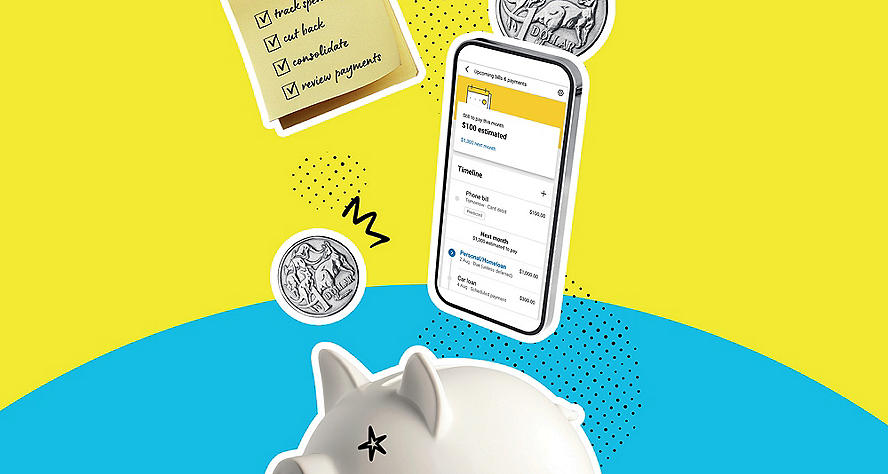1. Track your spending
The first step in tackling debt is to look at your spending. If you find that a lot of little luxuries have snuck into your lifestyle (we’re looking at you, multiple streaming services), now’s the time to cut back and use that money to start lowering your debt. “Try to live so that you’re spending less than you earn then divert some of those savings towards debt reduction,” says CommBank’s personal finance expert, Jess Irvine.
2. Be strategic
Not all debts are created equal so how do you know which one to pay off first? The “avalanche” method prioritises high-interest debt, such as credit cards. The idea is to reduce the amount of interest you’re paying to save you money in the long run. “It may take a while to get your first win, because your highest-interest debt may also be your biggest outstanding balance,” says Irvine, “but over time you’re going to save the most on interest by paying off the most expensive debts first.”
